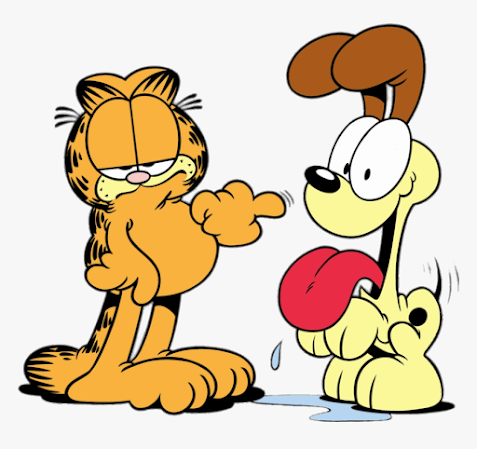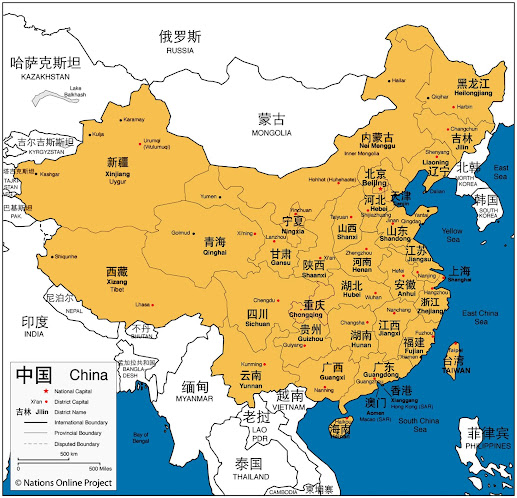One of the first things that struck me about Chinese is that, unlike most other languages, there doesn't seem to a simple word for "yes" or "no".
How does one answer yes/no questions, then?
Before we get into that, I want to talk about a few related tidbits.
1. English has a "yes" and a "no", but no clear way to rebut negative questions.
Let me illustrate.
Q. Do you speak English?
A. Yes, I speak English.
Q. Do you speak English?
A. No, I don't speak English.
That's fairly straightforward. But how would one answer a negative question?
Q. Don't you speak English?
If you did speak English, what would you say? And if you didn't, how would you agree? How would you use "yes" and "no" in this situation?
That's not straightforward, is it? (Come to think of it, how would you answer that negative question?)
2. German has a "ja" ("yes") and a "nein" ("no"), and also a third word "doch", which is explicitly used to rebut negative questions.
Q. Sprechen Sie Deutsch? ("Do you speak German?")
A. Ja, ich spreche Deutsch. ("Yes, I speak German.")
Q. Sprechen Sie Deutsch? ("Do you speak German?")
A. Nein, ich spreche nicht Deutsch. ("No, I don't speak German.")
Now watch.
Q. Sprechen Sie nicht Deutsch? ("Don't you speak German?")
A. Nein, ich spreche nicht Deutsch. ("No, I don't speak German.")
Q. Sprechen Sie nicht Deutsch? ("Don't you speak German?")
A. Doch, ich spreche Deutsch. ("Why no, I do speak German!")
3. It's pretty much the same in French. French has an "oui" ("yes") and a "non" ("no"), and also a third word "si", which is used to rebut negative questions.
Q. Parlez-vous Français? ("Do you speak French?")
A. Oui, je parle Français. (Yes, I speak French.")
Q. Parlez-vous Français? ("Do you speak French?")
A. Non, je ne parle pas Français. (No, I don't speak French.")
And watch again.
Q. Vous ne parlez pas Français? ("Don't you speak French?")
A. Non, je ne parle pas Français. (No, I don't speak French.")
Q. Vous ne parlez pas Français? ("Don't you speak French?")
A. Si, je parle Français. (Why no, I do speak French!")
Having a word like "doch" or "si" can be very handy, as we can see.
4. How does one answer such questions in Mandarin, given that there isn't even a "yes" or a "no"?
Check this out.
Q. 你 说 中文 吗? Nǐ shuō zhōngwén ma? ("Do you speak Chinese?")
A. 说 shuō ("Yes, I speak Chinese", literally just "Speak.")
Q. 你 说 中文 吗? Nǐ shuō zhōngwén ma? ("Do you speak Chinese?")
A. 不说 bù shuō ("No, I don't speak Chinese", literally just "Not speak.")
Simply repeating the verb is the affirmative answer. Prefixing the verb with 不 bù ("not") is the negative answer. [Remember that the verb 有 yǒu ("to have") is the exception which must be prefixed with the negative 没 méi instead of 不 bù.]
This style of answering a question then deals naturally with negative questions.
Q. 你 不说 中文 吗? Nǐ bù shuō zhōngwén ma? ("Don't you speak Chinese?")
A. 说 shuō ("Yes, I speak Chinese", literally just "Speak.")
Q. 你 不说 中文 吗? Nǐ bù shuō zhōngwén ma? ("Don't you speak Chinese?")
A. 不说 bù shuō ("No, I don't speak Chinese", literally just "Not speak.")
5. I remember my father telling me about how questions are answered in Russian.
Q. Это книга? Eto kniga? ("Is this a book?")
A. да, книга. Da, kniga. (literally, "Yes, book.")
You would not answer as in English, "Yes, it is".
Q. Это книга? Eto kniga? ("Is this a book?")
A. да, это. Da, eto. "Yes, this (is).")
That would just be bad Russian.
6. The difference between Russian and Mandarin is the repetition of the verb rather than the noun in the case of Mandarin.
Q. 这 是 书 吗? zhè shì shū ma? ("Is this a book?")
A. 是 shì ("Yes, it is", literally just "Is.")
Q. 这 是 书 吗? zhè shì shū ma? ("Is this a book?")
A. 不是 bù shì ("No, it isn't", literally just "Not is.")
Q. 这 不是 书 吗? zhè bù shì shū ma? ("Isn't this a book?")
A. 是 shì ("Yes, it is", literally just "Is.")
Q. 这 不是 书 吗? zhè bù shì shū ma? ("Isn't this a book?")
A. 不是 bù shì ("No, it isn't", literally just "Not is.")
So that's a unique and probably unambiguous way to answer a yes/no question, regardless of whether it's posed as an affirmative question or a negative question. The answer is always of the same form - just repeat the verb to affirm, or repeat it prefixed with a negative particle to negate.


















































